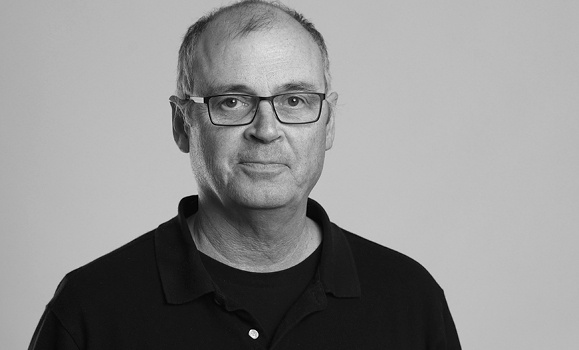Sciographies is a radio show and podcast about the people who make science happen, presented by The Faculty of Science and campus-community radio station CKDU 88.1 FM. This is the fourth article in a series that features excerpts from each new episode released this fall.
Dr. Michael Freund grew up in Gainesville, Florida, where his father was a medical researcher at the local university. Exposure to his dad’s work throughout his childhood sparked Dr. Freund’s interest in science and led him to build his own research career.
Today, Dr. Freund is a professor and the Harry Sherriff Chair of Chemical Research. informs the design of sensors, electrical devices, and energy storage technologies. He‚Äôs also the Director of AVĺ„ņ÷≤Ņ‚Äôs Clean Technologies Research Institute, where he facilitates the resources and funding needed to conduct studies that can help build a more sustainable future.
In this week’s episode of Sciographies, Dr. Freund talks to host David Barclay about designing sensor arrays that work with machine learning to mimic the brain’s olfactory system, the collaboration between fields to develop new materials, and more.
Listen to a preview of Dr. Freund’s episode
Here are some excerpts from the episode, edited for clarity and length.
Persevering in science
Barclay: In this field of new materials, there must be a lot of excitement ‚ÄĒ and pressure ‚ÄĒ to make progress. Has there ever been a time you've seen meaning in measurements that wasn‚Äôt there?
Freund: Things that are too good to be true? I mean, you have hypotheses and then you have to test them. If they‚Äôre not reproducible, there's nothing you can do about that, so you have to change directions. There are times where you have a hypothesis and it doesn't pan out the way you want ‚ÄĒ that's why you can't be too invested. One of the things I've learned throughout my career is that you can't be afraid of failure. You have to have confidence that you'll have new ideas‚Ķ If somebody else beats you to the punch and solves the problem, then there's always another problem, you know? Keep moving. It‚Äôs not competition to a finish line. It's always an ongoing process.
Pushing the envelope
Barclay: Do you have a memory of your first big new idea?
Freund: The person I did my post-doc with [at CalTech] was Nate Lewis. He had this idea of trying to mimic olfaction (). It was after this big [scientific] meeting and he said ‚Äėeverybody‚Äôs doing the same thing. Let‚Äôs do something completely different.‚Äô At the time, machine vision was just emerging and someone at CalTech named J.J. Hopfield, who was kind of a godfather of neural networks, was interested in olfaction because the neural processing is different [than vision]. So, Nate talked me into coming up with an input device for artificial olfaction‚Ķ As an analytical chemist [I‚Äôm concerned with] sensitivity, selectivity, and stability. You want to make a sensor that lasts forever and nothing will interfere with it. But the olfactory system is completely different. I mean, it's designed to react to everything, right? They're really crummy analytical sensors, really. So that was the first time I went into something completely different ‚ÄĒ a completely new idea ‚ÄĒ and it was very exciting. We were able to do some of the first early work in this area.
Synthesizing for shared success
Barclay: How did you end up coming to Dal?
Freund: When Dal was looking for a director for the Clean Technologies Research Institute (CTRI), I was very interested in doing that‚Ķ CTRI is quite broad. We have people working in advanced manufacturing, metals and ceramics, 3D printing, the clean water space, clean energy, batteries, photovoltaics, water splitting. My role at CTRI is to facilitate ‚ÄĒ to learn about what [our researchers] are doing and go after large funding opportunities, like the Canadian Innovation Fund (CFI), which pays for the multi-million-dollar infrastructure that no individual researcher could justify. It's a lot of fun. When we talk about advancing through a career‚Ķ when I got to the full professor level, I started thinking ‚Äėwhat else?‚Äô I became very interested in going after large grants, putting teams together, doing things that [would impact] more than just my own group‚Ķ It‚Äôs very rewarding to put together something bigger.
Listen to the entire episode of Sciographies at 4:30 PM today on in Halifax or find it on , , and other popular podcasting platforms. You can also listen to previous Sciographies episodes on the same platforms or at and dal.ca/sciographies.

